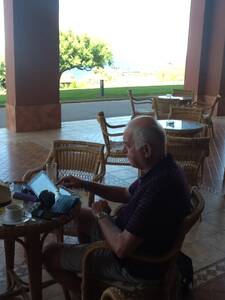Although written in 2015 Mischief for Scotland is as relevant now in 2021
It is a year after the Scottish Referendum with a result with a clear majority in favour of staying in the UK. This was supposed to be a once in a generation decision, and the SNP leadership agreed that it was. Still if you don’t like the result you can always change your mind. Perfect EU principle as Ireland discovered.
It is only four months after the UK’s general election result. Despite this, we still have the SNP calling for another referendum or how the UK government has no democratic mandate to rule in Scotland. This is because 56 of the 58 regional MPs are from SNP. This opinion carefully ignores the views of the other 594 MPs representing other areas of the UK and in particular claiming that the 331 Conservative Party MPs have no democratic mandate to rule in the UK. Full result here. I make that a democratic majority just in the Conservative party without taking into consideration the views of other parties on the subject of the Union. I am unclear what the new Labour leadership believe.
Although I believe that the United Kingdom is better together, that does not mean I am not heartily sick of hearing the SNP moaning about how badly treated Scotland is. Still it keeps the public’s eyes away from their actual record as the governing party of Scotland, with the current devolved powers of the Scottish Parliament. How about a few questions about that BBC and the rest of the media.
So in the spirit of helping the SNP out, I want to start a petition, not for them to have a referendum, but to be expelled from the Union. This should be a much faster process and for once, the rest of the United Kingdom might get a say in the matter. You can sign up via the UK Governments petition web site.
Click this link to sign the petition:
https://petition.parliament.uk/petitions/108874/sponsors/MJjAp4IjbnqBhJ1kg8
My petition:
Expel Scotland from the United Kingdom
There are only 56 MPs from the SNP, but they believe the rest of the 650 should carry out their wishes, whatever the consequences for the rest of the UK or what the UK voted for in May this year.
The SNP continues to press for an new referendum on membership of the UK. The Scottish people voted less than 12 months ago to stay; however, the remainder of the UK has had no say. If Scotland continues to ignore the democratic wishes of the rest of the UK it should be expelled.


